Tired of finding dog hair on every surface? Dreaming of a furry friend who won’t trigger your allergies? You’re not alone! Many people are searching for small quiet dogs that don’t shed. Luckily, there are several breeds that fit this description, offering the joy of dog ownership without the constant shedding and potential allergic reactions. This guide will introduce you to some of the best options for low-shedding, small, and relatively quiet dogs, helping you find the perfect companion for your lifestyle.
Affenpinscher
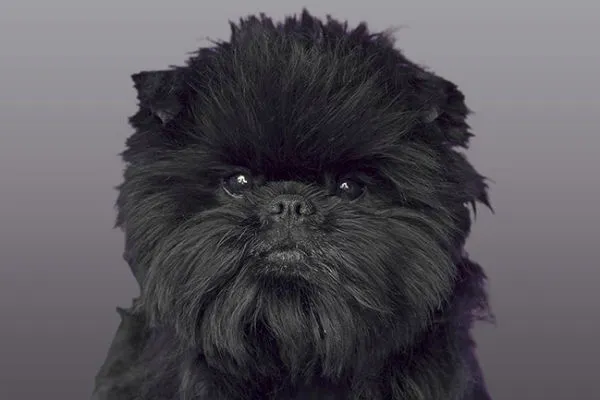 Affenpinscher posing proudly, showcasing its unique monkey-like face and wiry coat
Affenpinscher posing proudly, showcasing its unique monkey-like face and wiry coat
The Affenpinscher, whose name translates to “monkey-like terrier,” is an intelligent and distinctive breed. Don’t let their small size fool you; these Toy dogs are fearless and alert. A significant advantage for those seeking small quiet dogs that don’t shed is their wiry coat. It sheds very little and has almost no doggy odor. A simple brushing twice a week with a slicker brush and comb is usually sufficient to keep your Affenpinscher looking its best.
Basenji
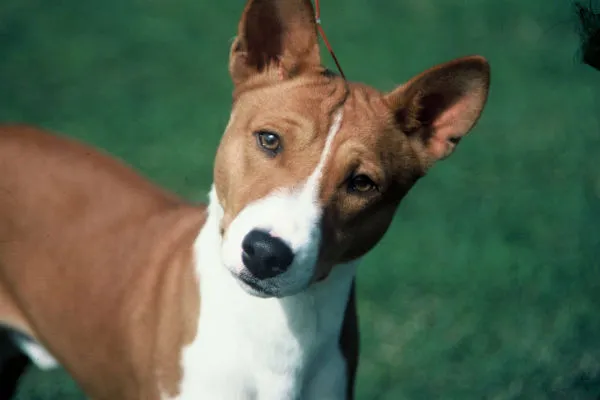 Basenji standing alert, showcasing its short, fine coat and muscular build
Basenji standing alert, showcasing its short, fine coat and muscular build
If you appreciate the hound personality but are turned off by their typical odor and shedding, the Basenji might be the perfect solution. The Basenji sheds very little, and its short, fine coat needs minimal grooming beyond occasional brushing. Notably, Basenjis are known for being quiet dogs, a significant plus for apartment living. Remember, however, that they need daily exercise and playtime. Thinking about a toy poodle mix? You might also consider a Basenji! Check out these toy poodle mix puppies for sale near me.
Bichon Frise
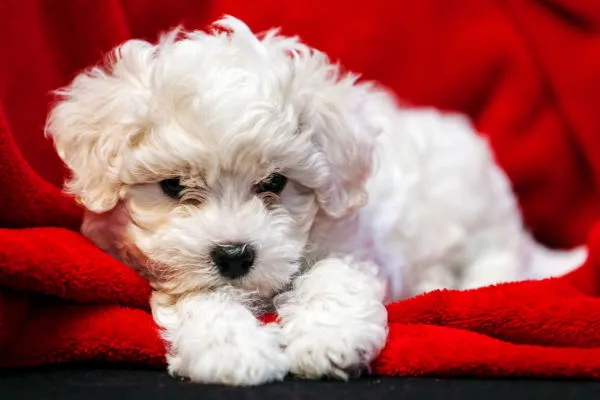 Bichon Frise with its signature fluffy white coat, looking playful and happy
Bichon Frise with its signature fluffy white coat, looking playful and happy
The Bichon Frise truly embodies a non-shedding small dog. These playful and affectionate dogs are often recommended for people with allergies. However, don’t mistake “non-shedding” for “no maintenance.” The Bichon Frise’s hair grows continuously and requires regular grooming, brushing, and occasional baths to maintain its signature powder-puff appearance.
Bolognese
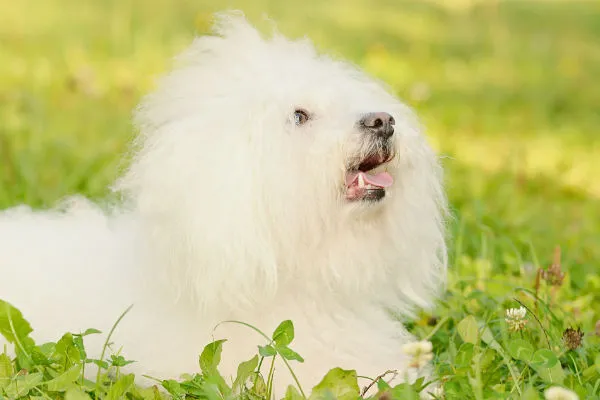 Bolognese dog with a dense, fluffy white coat, sitting calmly and looking directly at the camera
Bolognese dog with a dense, fluffy white coat, sitting calmly and looking directly at the camera
Similar to the Bichon Frise, the Bolognese has a fluffy coat comprised of hair rather than fur. These dogs do not shed, but regular brushing is essential to remove dead hair and prevent mats. Daily grooming is recommended to keep these lovable lap dogs looking their best.
Brussels Griffon
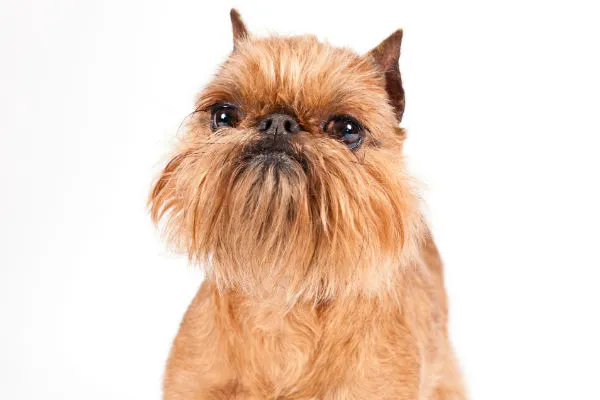 Brussels Griffon with a beard and mustache, exuding a confident and alert expression
Brussels Griffon with a beard and mustache, exuding a confident and alert expression
The Brussels Griffon is a small dog with a big personality. Both smooth-coated and rough-coated varieties are minimal shedders and thrive with regular grooming. Their small size allows them to get sufficient exercise through daily walks and indoor play. These loyal little dogs bond strongly with their families.
Chinese Crested
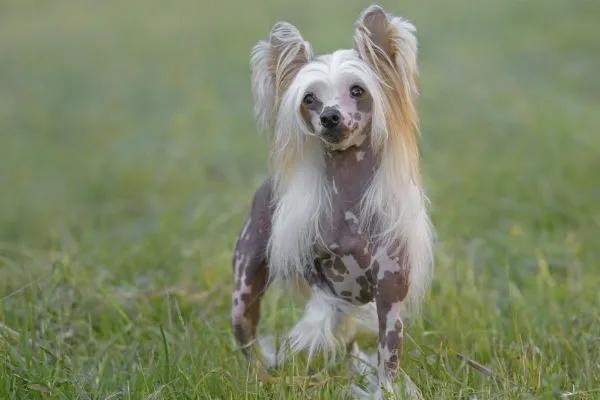 Chinese Crested dog, hairless variety, with its distinctive tufts of hair on the head, feet, and tail
Chinese Crested dog, hairless variety, with its distinctive tufts of hair on the head, feet, and tail
One way to completely avoid shedding is to choose a hairless breed. Chinese Crested come in two coat types: hairless and powderpuff. Hairless varieties have hair only on their head, tail, and feet, while powderpuffs have a fine coat that sheds very minimally. Keep in mind that hairless dogs need extra skin care to protect them from the sun and cold.
Coton de Tulear
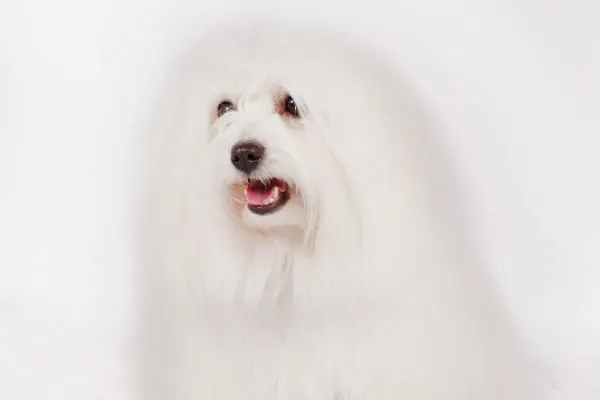 Coton de Tulear with a long, fluffy white coat, looking gentle and friendly
Coton de Tulear with a long, fluffy white coat, looking gentle and friendly
The Coton de Tulear boasts a distinctive, long, fluffy coat often considered hypoallergenic, making it a popular choice for allergy sufferers. While daily grooming is needed to maintain their coat, their gentle and playful nature makes the effort worthwhile.
Havanese
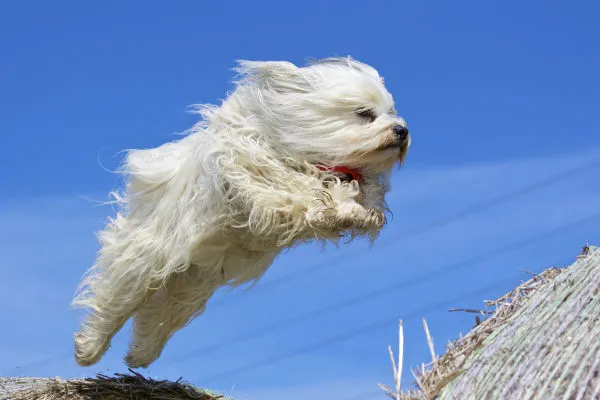 Havanese dog with a silky, flowing coat, looking alert and intelligent
Havanese dog with a silky, flowing coat, looking alert and intelligent
Hailing from Cuba, the Havanese offers charm and a low-shedding coat. Weekly brushing and regular baths are necessary to keep their coat clean and healthy, allowing for more playtime and less time cleaning up shed hair. If a Havanese sounds appealing, you might also consider a miniature poodle. Why not explore miniature poodle puppies for sale near me?
Maltese
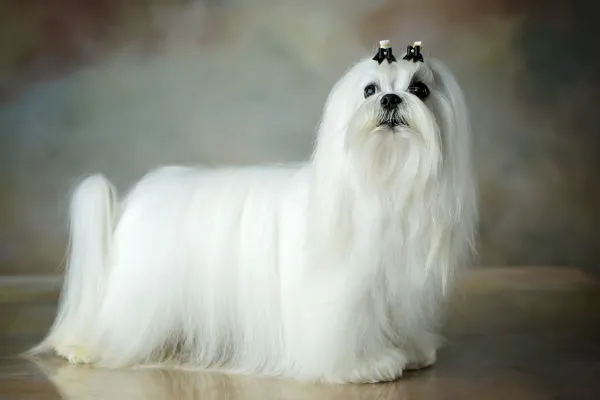 Maltese dog with a long, flowing white coat, looking elegant and poised
Maltese dog with a long, flowing white coat, looking elegant and poised
Maltese dogs have charmed people for millennia, and their long, white coats shed very little, making them ideal lap dogs. Regular brushing is needed to prevent mats, and occasional baths keep their silky hair clean.
Lhasa Apso
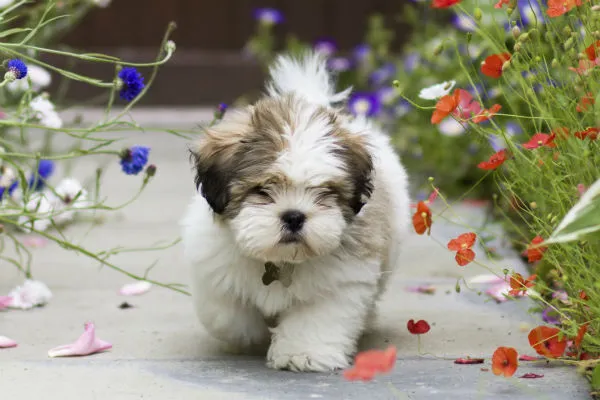 Lhasa Apso with a long, flowing coat, looking calm and dignified
Lhasa Apso with a long, flowing coat, looking calm and dignified
This small dog breed from Tibet is a calm and playful companion. Lhasa Apsos don’t shed, but their coats require regular maintenance. Many owners opt for a “puppy cut” to simplify grooming.
Miniature Schnauzer
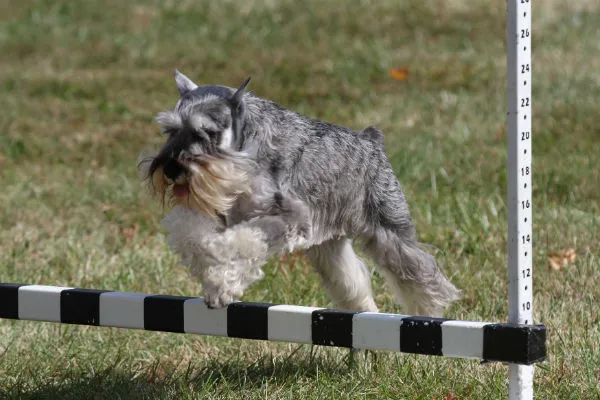 Miniature Schnauzer with its distinctive beard and eyebrows, looking alert and intelligent
Miniature Schnauzer with its distinctive beard and eyebrows, looking alert and intelligent
The Miniature Schnauzer is an intelligent, trainable, and cheerful dog. This Terrier sheds very little and adapts well to both city and country living. Weekly brushing and regular grooming are essential to keep them looking their best.
Poodle
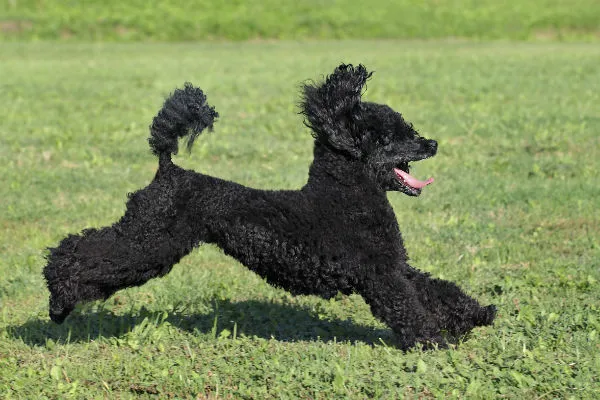 Poodle with a curly coat, showcasing its elegant and athletic build
Poodle with a curly coat, showcasing its elegant and athletic build
Poodles are often the first breed that comes to mind when considering non-shedding dogs. Miniature and Toy Poodles offer these qualities in a small package. All Poodles are highly intelligent and easy to train. Regular grooming is required to maintain their coats.
Scottish Terrier
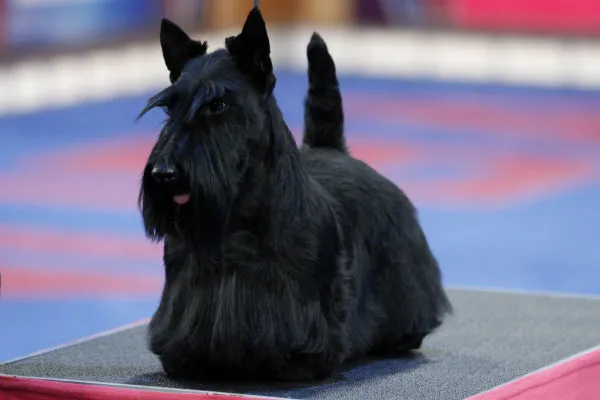 Scottish Terrier with its distinctive black coat and confident stance
Scottish Terrier with its distinctive black coat and confident stance
The Scottish Terrier, or Scottie, is a bold and confident breed with a wiry, weather-resistant coat that sheds very little. Regular brushing, grooming, and occasional hand-stripping are needed to maintain the breed’s characteristic outline.
Shih Tzu
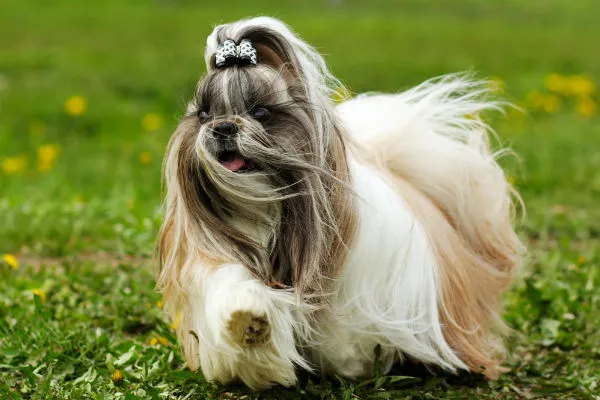 Shih Tzu with a long, flowing coat, looking regal and friendly
Shih Tzu with a long, flowing coat, looking regal and friendly
The Shih Tzu, a favored house pet of the Tang Dynasty, has long, silky hair that is very low-shedding. This Toy breed is sturdy and lively, with a gentle and trusting nature.
West Highland White Terrier
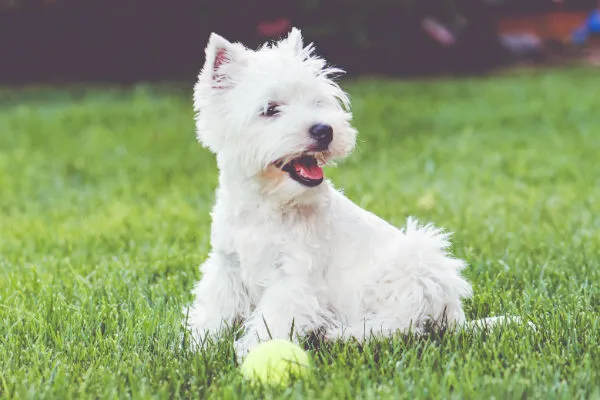 West Highland White Terrier with a white coat, looking alert and cheerful
West Highland White Terrier with a white coat, looking alert and cheerful
The West Highland White Terrier, or Westie, has a coarse, white coat that sheds very little. This intelligent and loyal breed is happy and entertaining.
Xoloitzcuintli
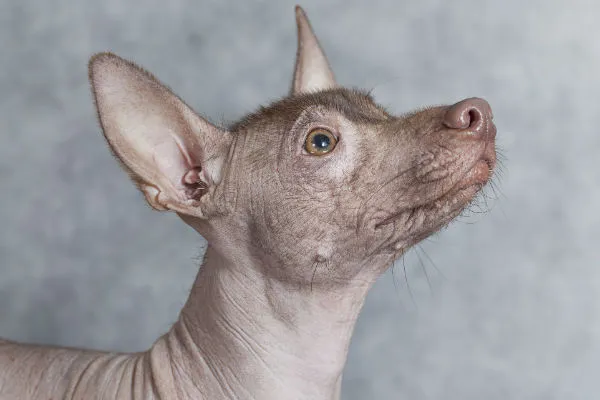 Xoloitzcuintli dog, hairless variety, with its smooth skin and elegant appearance
Xoloitzcuintli dog, hairless variety, with its smooth skin and elegant appearance
The Xoloitzcuintli, also known as the Mexican Hairless, is an ancient and rare breed. Hairless varieties have minimal hair, while coated varieties have a very short, fine coat that sheds minimally. Hairless Xolos need extra skin care.
Yorkshire Terrier
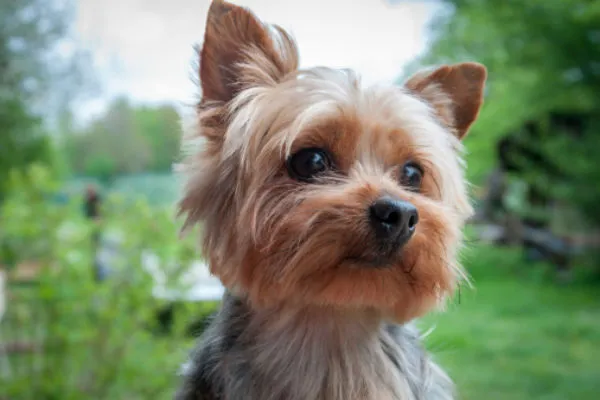 Yorkshire Terrier with a long, silky coat, looking playful and energetic
Yorkshire Terrier with a long, silky coat, looking playful and energetic
Sprightly, tomboyish, and affectionate, the Yorkshire Terrier, or Yorkie, is a Toy breed full of personality. These spunky lap dogs do not shed, and their silky coats are beautiful when brushed out daily.
Other Small Dog Breeds That Don’t Shed
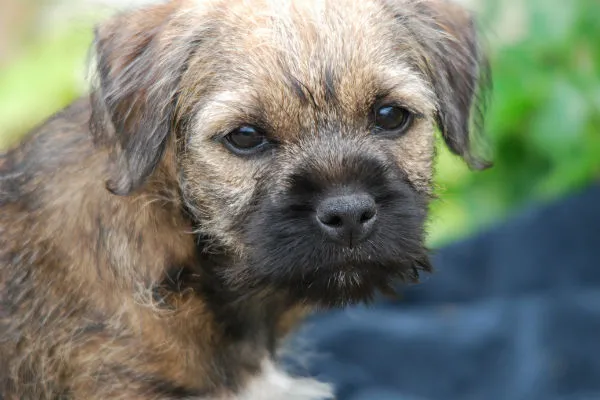 Border Terrier with a wiry coat, looking curious and adventurous
Border Terrier with a wiry coat, looking curious and adventurous
The Terrier group is full of small dogs that don’t shed or shed minimally. Wiry- and coarse-haired Terriers shed less than other breeds.
Finding small quiet dogs that don’t shed requires research and careful consideration. While these breeds offer a solution to shedding and potential allergies, remember that all dogs need proper care, including regular grooming, a high-quality diet, and veterinary checkups. Choosing a dog from a reliable breeder is crucial to avoid potential health problems. By taking the time to find the right breed and providing proper care, you can enjoy the companionship of a small, quiet, and low-shedding dog for many years to come.
